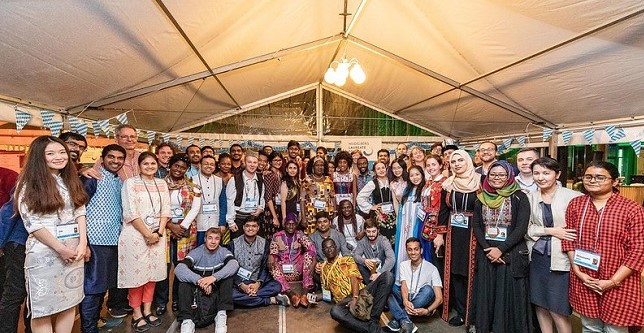
The demand to publish frequently in peer-reviewed journals is putting unnecessary pressure on early career researchers trying to make breakthroughs, academicians say.

Julie Williamson, a lecturer in Human Computer Interaction at the UK’s Glasgow University, told the 7th Heidelberg Laureate Forum (September 23 to 27, 2019) in Heidelberg, Germany, that there is the need to publish less to get high quality papers.
The forum is an annual weeklong networking conference for selected young researchers in mathematics and computer to spend time with award winning laureates.
“Certainly, the vast quantities of publications keep growing and often we publish for reasons that has nothing to do with scientific contributions,” she states.
For instance, she explains, a computer scientist may publish frequently to attend conferences, or because of expectations to do so much work every year.
“That is not the same thing as publishing because I have made an important discovery that I want to disseminate. It is important to attend conferences to build your networks and get fresh ideas. But I want us to separate that from publications and publishing.”
According to Williamson, to “publish or perish” is a horrible stress on early researchers and makes them go for less risky research but that they know will definitely be published.
“They will not be exploring the more creative, unusual ideas and things that you want to show can work. Those in their early career will have to play it safe. They can’t take risks for interesting breakthroughs because they need to have something that they can publish and not likely of negative results that are not publishable.
Scientific publishing, especially for the developing world early researchers, will make the results of their works publicly accessible, says Efim Isaakovich Zelmanov, a mathematician from the University of Californian in San Diego.
Zelmanov said that the structural order in academic institutions is such that to go higher and also to be promoted you have to publish.
However, he says that the controversy around “publish or perish culture” in order to get hired or promoted is intensifying with some claiming it is putting unnecessary pressure on researchers, especially early career scientists.
There is also the concern that authors write papers, editors send them to referees to work them and owners of publishing houses get income yet they contribute almost nothing to the research done.
“The system is unfair as it is, has been rotten for some time, money goes to the library and many feel that if the research is funded by public foundation, it has to be accessible to anybody,” says Zelmanov.
“These are serious and legitimate concerns. But the [alternative] system being proposed that the authors pay for papers to be published but are made freely accessible to anybody is worse,” he says.
“This,” he adds, “Is equivalent to stating that we do not adopt papers from poorer countries as many authors can’t afford the cost, which is grossly unfair.”
Zelmanov said in an interview that there are little submissions from Africa because of the lack of good education. “In most countries there is not good enough education that can support researchers and publishing in most Africa.” As the profiles of scientific institutions remain low, they will not be favoured by editors.
Peer review is also done mostly in the west and refereeing done from the developing countries is lower than the share of papers produced. “For instance, when an editor gets a paper from a country not known for high level of mathematical research, he can be biased against it,” he says.
By EnviroNews Correspondent